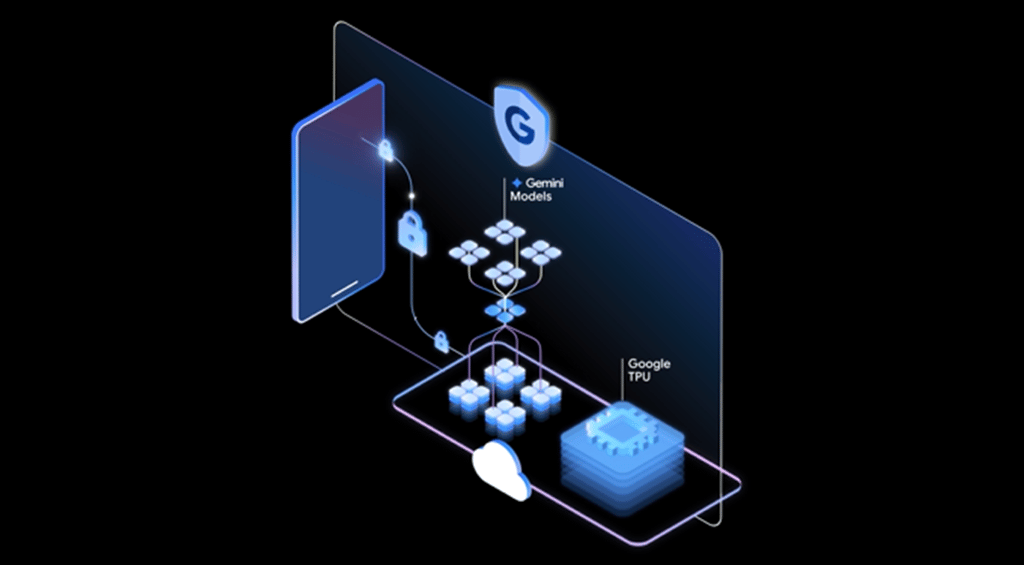Kubernetes, the darling of the container world, seems set to dominate the next decade of container orchestration. That is, if containers last that long.
While it seems obvious that containers, the heir apparent to virtual machines, should have a long shelf life, the serverless boom may actually serve to cut it short. Though serverless offerings from AWS and Microsoft are built on the backs of containers, they eliminate the server metaphor entirely (and, hence, the need to containerize that server).
Cloud Storage and Backup Benefits
Protecting your company’s data is critical. Cloud storage with automated backup is scalable, flexible and provides peace of mind. Cobalt Iron’s enterprise-grade backup and recovery solution is known for its hands-free automation and reliability, at a lower cost. Cloud backup that just works.
SCHEDULE FREE CONSULT/DEMO
According to some, including Expedia’s vice president of cloud, Subbu Allamaraju, serverless frameworks like AWS Lambda are improving at such a torrid pace that they may soon displace container wunderkind like Kubernetes.
Killing Your Servers, and Not So Softly
As hawtness goes, it’s hard to find anything bigger than Kubernetes. Ranked in the top .01% of all GitHub projects, and pulling over 1,500 contributors, Kubernetes is on fire. Given its Google pedigree and the promise of helping run containers at scale, it’s not hard to see why.
And yet…the serverless phenomenon is already putting containers under fire, and just a few short years after Docker popularized them for mainstream enterprises.
Why? Well, according to Simon Wardley, industry pundit and advisor to the Leading Edge Forum, it’s because serverless changes…everything: it’s an “entirely new set of emerging practices that’ll change the way we build business.”
Oh, that’s all?
This wouldn’t trouble containers much if serverless were some distant possibility for enterprise infrastructure, but it’s happening now, and fast. Indeed, serverless’ potential comes with casualties, as Allamaraju posits: “Serverless patterns are pulling the rug from underneath container cluster managers faster than the latter [are] becoming industrial grade.” If this seems a bit unbelievable, that’s because it is – if you’re thinking of IT circa 2010 or earlier.
Cloud, however, has dramatically accelerated things. Responding to Allamaraju’s claim, Amplify Partners’ Mike Dauber commented, “It’s incredible how fast we’re collectively moving here. Container management is NOT legacy tech…”. No. By most enterprise standards, it’s still the cutting edge. This must make serverless the diamond blade cutting the cutting edge. Yet this pace of application development innovation is only going increase.
Will enterprises be able to keep up?
Can’t Get Here From Here?
Serverless frameworks like AWS Lambda may be the future, but it’s unclear whether enterprises are ready to embrace them yet. Google’s Alan Ho, for example, believes that “From a programming model and a cost model, AWS Lambda is the future – despite some of the tooling limitations.” Even so, “Docker…is an evolutionary step of ‘virtualization’ that we’ve been seeing for the last 10 years,” while “AWS Lambda is a step-function.” Not everyone is ready to break out of the evolutionary IT track.
Talking with Server Density CEO David Mytton, he confirmed this supposition:
“The migration path for VMs to containers is much easier than VMs to serverless. Serverless is basically starting from scratch and that’s a huge barrier for existing workloads. The question is whether serverless becomes the starting point for new applications. The lack of proper tools around development, builds, monitoring and testing is a real barrier to that right now.”
Not only is serverless a more difficult migration path, but it also requires a fundamental paradigm shift in how we think about infrastructure, Begin founder and CEO Brian Leroux advised me. You have to get beyond the server metaphor, he said “As soon as you take that metaphorical leap, you get a huge degree of isolation and in that isolation you get more durability.”
As much as the learning curve for serverless can be steep, Leroux stressed, Kubernetes and containers aren’t easy, either. The payoff for making that serverless shift, however, is huge: “In Kubernetes you can compose a microservices architecture but you have to take care of the plumbing yourself. Lambda just takes care of all of that for you. With Lambda you don’t think about how your application is going to scale.” AWS takes care of all that bother for the developer.
When I asked how long it took Leroux’s development team to get comfortable with AWS Lambda, he suggested that it took a year for the team to really get comfortable as the team figured out “Amazon-isms.” Microsoft Azure, however, second to the serverless party, watched AWS’ successes and failures, he indicated, and has made it much easier, faster to get up and running with serverless. AWS has since caught back up because, he told me, “The pace of innovation is stunning for Azure and AWS.”
Google, perhaps because of its Kubernetes heritage, has been slower to establish itself as a credible serverless player. This doesn’t bode well for Google’s Cloud, though its Kubernetes-to-Google-Cloud play has been a fantastic stroke. One reason that AWS Lambda is so good, Mytton told me, is that it’s likely the heart of the Amazon Echo. In other words, “AWS is productizing their own usage of it, which is why it’s already pretty good.” This is also why Google Cloud functions remains far behind, he reasons: “I’m unsure what Google themselves might use it for, as Kubernetes is heavily used inside Google as Borg.”
The more serverless bypasses containers entirely, however, Google’s cloud will start to look retro.
In-Between Days
Enterprises aren’t going to dump their new container initiatives overnight, of course. Not all applications are an easy match for serverless, for example. Mytton told me that event-based apps, e.g., Internet of Things-type apps, are particularly well-suited to serverless, though not exclusively so.
It’s also the case that the shift to serverless will be an easier decision for new, greenfield applications. For enterprises simply hoping to modernize their monolithic, old-school VM-based applications, containers and Kubernetes will play a key role for some time.
At least, until something even newer/better/cheaper/faster/better comes along. At the current pace of enterprise infrastructure innovation, set your alarms for…next year.
I’m joking, of course, but a quick look at how the enterprise cloud market has changed is revealing. As Allamaraju pointed out to me, “Platforms like OpenStack had 6-7 years for raise, plateau and slow down.” But “Container cluster managers may not have those many years,” he goes on.”
David Linthicum preaches truth when he opines, “The feature gap between public and private clouds has grown so wide that the private cloud demos that I attend are laughable considering the subsystems that enterprises need, such as security, governance, databases, IoT, and management, versus what private clouds actually deliver.” Just a few years ago, however, all the capabilities were in private datacenters. Public clouds were cheap and convenient but feature-light.
Today, the opposite is true.
As Allamaraju says, innovation in serverless is outpacing the maturing of Kubernetes and other container management tools. This bodes well for serverless, and not so well for containers. Containers may end up being the hottest trend in enterprise computing, and yet not be able to sustain that heat for very long. Not when developers are ultimately driven by which tools will deliver the most productivity for the most convenience. Serverless, again, provides a step function in that equation. Containers are merely evolutionary.
So, yes, Kubernetes, important and cool as it is today, is very much at risk. A year ago that would have been heresy. A year from now that might be received wisdom.
Matt Asay is VP of Mobile at Adobe
-
Huawei’s AI Update: Things Are Moving Faster Than We Think
FEATURE | By Rob Enderle,
December 04, 2020
-
Keeping Machine Learning Algorithms Honest in the ‘Ethics-First’ Era
ARTIFICIAL INTELLIGENCE | By Guest Author,
November 18, 2020
-
Key Trends in Chatbots and RPA
FEATURE | By Guest Author,
November 10, 2020
-
Top 10 AIOps Companies
FEATURE | By Samuel Greengard,
November 05, 2020
-
What is Text Analysis?
ARTIFICIAL INTELLIGENCE | By Guest Author,
November 02, 2020
-
How Intel’s Work With Autonomous Cars Could Redefine General Purpose AI
ARTIFICIAL INTELLIGENCE | By Rob Enderle,
October 29, 2020
-
Dell Technologies World: Weaving Together Human And Machine Interaction For AI And Robotics
ARTIFICIAL INTELLIGENCE | By Rob Enderle,
October 23, 2020
-
The Super Moderator, or How IBM Project Debater Could Save Social Media
FEATURE | By Rob Enderle,
October 16, 2020
-
Top 10 Chatbot Platforms
FEATURE | By Cynthia Harvey,
October 07, 2020
-
Finding a Career Path in AI
ARTIFICIAL INTELLIGENCE | By Guest Author,
October 05, 2020
-
CIOs Discuss the Promise of AI and Data Science
FEATURE | By Guest Author,
September 25, 2020
-
Microsoft Is Building An AI Product That Could Predict The Future
FEATURE | By Rob Enderle,
September 25, 2020
-
Top 10 Machine Learning Companies 2020
FEATURE | By Cynthia Harvey,
September 22, 2020
-
NVIDIA and ARM: Massively Changing The AI Landscape
ARTIFICIAL INTELLIGENCE | By Rob Enderle,
September 18, 2020
-
Continuous Intelligence: Expert Discussion [Video and Podcast]
ARTIFICIAL INTELLIGENCE | By James Maguire,
September 14, 2020
-
Artificial Intelligence: Governance and Ethics [Video]
ARTIFICIAL INTELLIGENCE | By James Maguire,
September 13, 2020
-
IBM Watson At The US Open: Showcasing The Power Of A Mature Enterprise-Class AI
FEATURE | By Rob Enderle,
September 11, 2020
-
Artificial Intelligence: Perception vs. Reality
FEATURE | By James Maguire,
September 09, 2020
-
Anticipating The Coming Wave Of AI Enhanced PCs
FEATURE | By Rob Enderle,
September 05, 2020
-
The Critical Nature Of IBM’s NLP (Natural Language Processing) Effort
ARTIFICIAL INTELLIGENCE | By Rob Enderle,
August 14, 2020
SEE ALL
CLOUD ARTICLES







